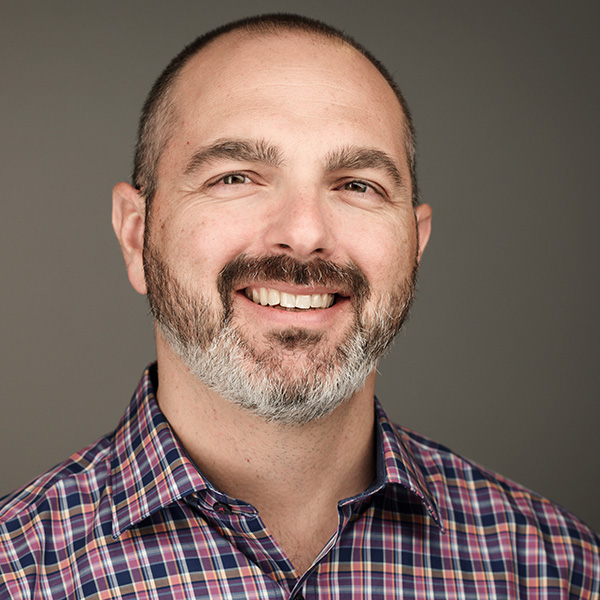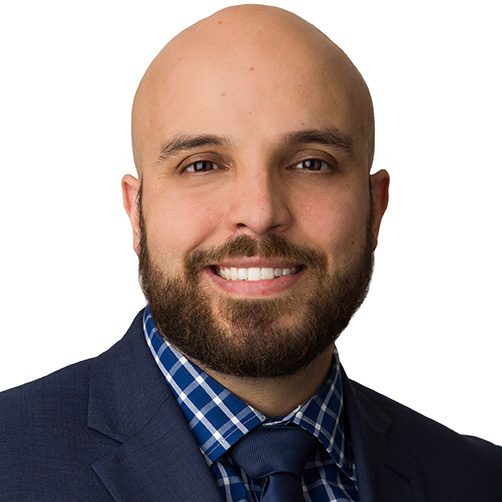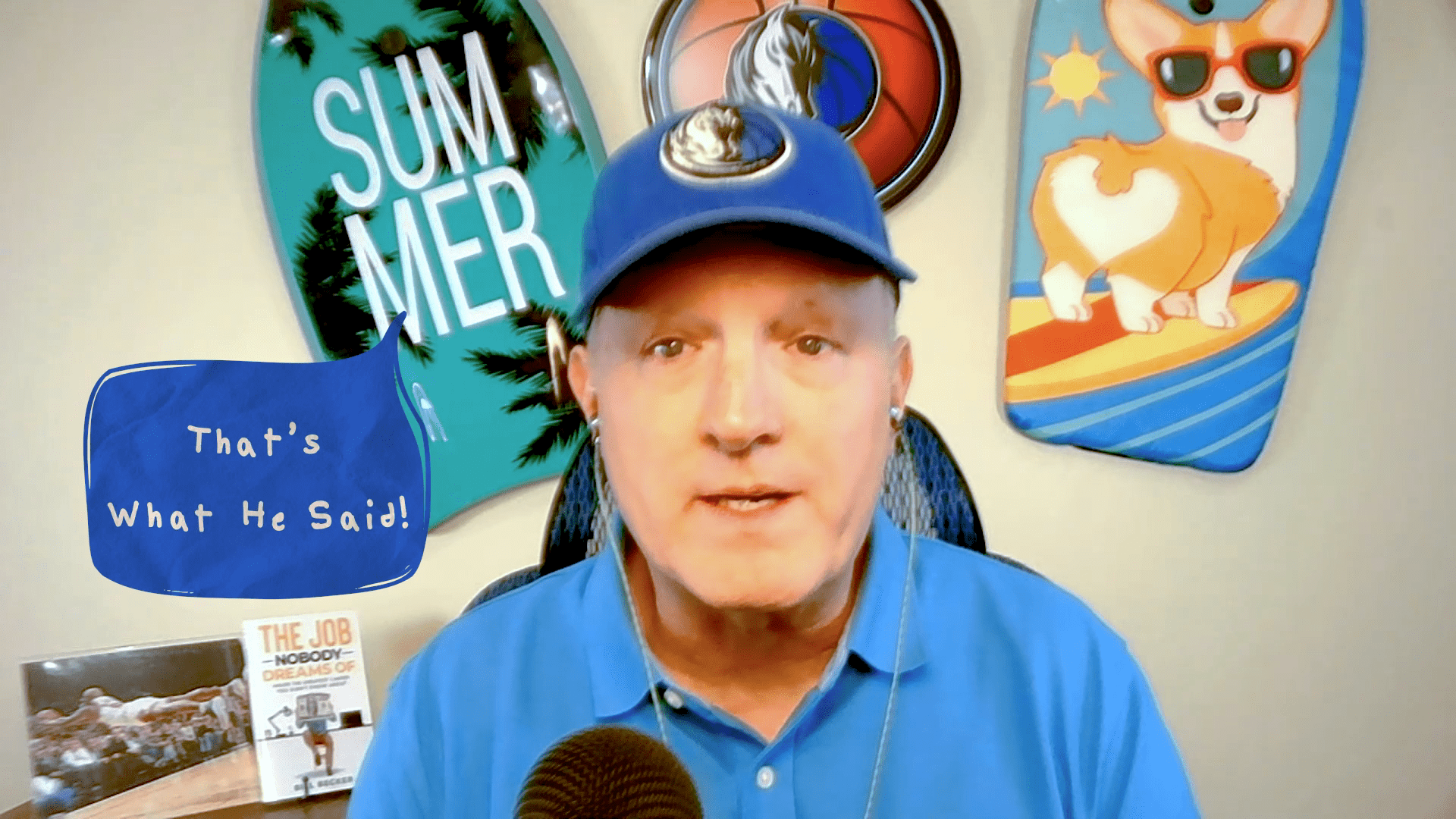“Do Whatcha Gotta Do”
n
u201cOK, Alan. If youu2019re interested in us, Iu2019d be interested in you. Iu2019ll need to talk to Sam, my partner. He may want to meet you.u201d
n
n
I had been a booking agent selling engagements for celebrity speakers on college campuses for six years. I was twenty-six years old.u00a0 I was attending the national u00a0conference of the National Entertainment Conference, (NEC) a trade association ofu00a0 Directors of Student Activities and college lecture and entertainment committee chair people at the Shoreham Hotel. In Washington, D.C.
n
It was a rough conference for me. I had worked very hard to build Relationships with NEC leadership, which helped me get referralsu00a0 and increased my sales. My boss disliked the NEC intensely. My boss wasnu2019t the most ethical person in the business and the NEC had used its watchdog role to publicly reprimand him. In fact I had worked very hard to overcome a blackball order in my territory and had been invited to join the national board. My boss did not approve.
n
At the conference I learned that my boss had made several decisions, which the board disagreed with and which completely undermined all the relationship building I had done. It was a very stressful three days.
n
A friend had joined Lordly & Dame, a competing agency. Phil asked me if Iu2019d be interested in joining L&D and arranged a meeting with David Lacamera..
n
Big Dave
n
u201cThereu2019ll be a lawsuit, but that wonu2019t bother us. Heu2019s sued us before and weu2019ve won before. So Iu2019ll talk to Sam on Monday and call you after,u201d smiledu00a0 Big Dave.
n
David Lacamera was a year older than me, a little taller and weighed in at about two hundred fifty pounds. His manner was friendly and u201cgentle;u201d he spoke slowly and quietly in a field characterized by loud motor-mouths.u201d
n
I met Sam Dame within a week, who let me know, this was a formality insisted on by David. u201cIf David wants to hire you then thatu2019s OK with me. Lectures is his business and he runs it.u201d
n
There was a law suit and we settled. As part of the settlement I would have to work the West Coast territory rather than the New York, New Jersey territory I had been working. It was a startup territory for L&D. There were no established customer lists with phone numbers. I also came to find that Lordly & Dame had no direct mail program like my previous agency.
n
I made phone calls, lots of phone calls, something Big Dave described as u201cburning the phones,u201d but I longed to have some incoming phone calls. I asked Dave if I could start a simple direct mail program. u201cIt wonu2019t cost much. Iu2019ll get the addresses and stuff envelopes.u00a0 Iu2019ll print mimeo sheets for the mailers and Iu2019ve found a template we can use for the addresses so Kateu2019ll only have to type u2019em once.u201d
n
n
u201cDo whatcha gotta do.u201d
n
n
u201cReally? I can give you an accounting of all expenses. . u201c
n
u201cAlan, do whatcha gotta do. You try it out. If it works, great. If not, try something else.u201d
n
It worked. I mailed. The phones rang. The West Coast territory grew up quickly. My sales didnu2019t rival New York, but they were quite respectable, sooner than expected.
n
I suggested that we might produce a brochure and mail nationally.
n
There were some agents who objected. u201cI donu2019t think people respond to direct mail. I think they want to have a personal phone call,u201d said Bill, who mostly sold poets and authors to English departs and other staff.
n
u201cIu2019m not so sure thatu2019s true, Bill, said Dave. u201cI see the results Alan is having out West and I think we should try it for the rest of the country.u201d I thanked David for backing my suggestion.
n
u201cAlan, I didnu2019t hire you to do things the way we always have done. Of course I want your ideas, and this one seems like a no-brainer. I mean itu2019s already working.u201d
n
We tried a national mailing. Phones rang. Sales went up.
n
Over the next three years, I came up with ideas and David encouraged me to try them. His answer was al3ays the same.
n
u201cAlan, do whatcha gotta do.u201d
n
On one of the little start-up enterprises I attempted, I challenged him. u201cDavid this is likely to require more Money than anything else Iu2019ve tried. Lordly & Dame has never done anything like this. Youu2019ve never done anything like this. u2018Do whatcha gotta dou2019 doesnu2019t seem appropriate.u201d
n
Dave scowled. He didnu2019t look angry often, but he was clearly frustrated with me.
n
u201cAlan. Why would I hire you to do stuff weu2019ve always done? I didnu2019t hire you to implement my ideas. Iu2019m not the only one who has ideas. So far, you havenu2019t done anything stupid, so why wouldnu2019t I trust you to take a shot at something you think will work? I appreciate you asking and like that you think things through before you ask, but donu2019t give me a hard time about letting you do what you think it important to grow this business. Do whatcha gotta do.u201d
n
Iu2019ve worked many places since L&D. There have been a few times when a leader gave me the kind of autonomy that Big Dave Lacamera did, but it definitely wasnu2019t the norm. I went to work for myself twice seeking autonomy and in fact of the thirty-seven years I spent in consulting, twenty-three were spent working for myself.
n
Autonomy
n
I am motivated by autonomy. Perhaps Dave knew that instinctively or perhaps that was just the kind of leader he was. He ran a fun place to work and we all felt part of a team, but we were in sales so the only collective work product we had was the Growth and reputation of the firm. Somehow we shared that.
n
I often differentiate between leaders and managers in terms of the environment they work in. Managers get the work done and develop people in a steady state. Leaders communicate direction and attract followers in abnormal circumstances like change or emergencies. By this definition Dave Lacamera was demonstrating his management skill developing me to think for myself to come up with new ways to get the work done.
n
The autonomy he gave the whole teamu00a0 created a willingness to follow him. The differentiation leader or manager is not so clear.
n
Lessons:
n
- n
- Managers are accountable for developing their people, not just to get todayu2019s work done, but developing them for the future. That requires giving autonomy,u00a0 which attracts followers – an accountability of leadership.
- Autonomy is keyn
- n
- Hire people as capable or more capable than you but different.
- Evaluate their ability to operate autonomously.
- Give them as much autonomy as they can handle (or more).
n
n
n
n
n
n
n
This reminds me of one of my favorite quotes about leadership:
n
u201cA leader is best when people barely know he exists. When his work is done, his aim fulfilled, people say, we did it ourselvesu201du00a0u00a0 Lao Tzu
n
“,”tablet”:”
n
u201cOK, Alan. If youu2019re interested in us, Iu2019d be interested in you. Iu2019ll need to talk to Sam, my partner. He may want to meet you.u201d
n
n
I had been a booking agent selling engagements for celebrity speakers on college campuses for six years. I was twenty-six years old. I was attending the national conference of the National Entertainment Conference, (NEC) a trade association of Directors of Student Activities and college lecture and entertainment committee chair people at the Shoreham Hotel. In Washington, D.C.
n
It was a rough conference for me. I had worked very hard to build relationships with NEC leadership, which helped me get referrals and increased my sales. My boss disliked the NEC intensely. My boss wasnu2019t the most ethical person in the business and the NEC had used its watchdog role to publicly reprimand him. In fact I had worked very hard to overcome a blackball order in my territory and had been invited to join the national board. My boss did not approve.
n
At the conference I learned that my boss had made several decisions, which the board disagreed with and which completely undermined all the relationship building I had done. It was a very stressful three days.
n
A friend had joined Lordly & Dame, a competing agency. Phil asked me if Iu2019d be interested in joining L&D and arranged a meeting with David Lacamera..
n
Big Dave
n
u201cThereu2019ll be a lawsuit, but that wonu2019t bother us. Heu2019s sued us before and weu2019ve won before. So Iu2019ll talk to Sam on Monday and call you after,u201d smiled Big Dave.
n
David Lacamera was a year older than me, a little taller and weighed in at about two hundred fifty pounds. His manner was friendly and u201cgentle;u201d he spoke slowly and quietly in a field characterized by loud motor-mouths.u201d
n
I met Sam Dame within a week, who let me know, this was a formality insisted on by David. u201cIf David wants to hire you then thatu2019s OK with me. Lectures is his business and he runs it.u201d
n
There was a law suit and we settled. As part of the settlement I would have to work the West Coast territory rather than the New York, New Jersey territory I had been working. It was a startup territory for L&D. There were no established customer lists with phone numbers. I also came to find that Lordly & Dame had no direct mail program like my previous agency.
n
I made phone calls, lots of phone calls, something Big Dave described as u201cburning the phones,u201d but I longed to have some incoming phone calls. I asked Dave if I could start a simple direct mail program. u201cIt wonu2019t cost much. Iu2019ll get the addresses and stuff envelopes. Iu2019ll print mimeo sheets for the mailers and Iu2019ve found a template we can use for the addresses so Kateu2019ll only have to type u2019em once.u201d
n
n
u201cDo whatcha gotta do.u201d
n
n
u201cReally? I can give you an accounting of all expenses. . u201c
n
u201cAlan, do whatcha gotta do. You try it out. If it works, great. If not, try something else.u201d
n
It worked. I mailed. The phones rang. The West Coast territory grew up quickly. My sales didnu2019t rival New York, but they were quite respectable, sooner than expected.
n
I suggested that we might produce a brochure and mail nationally.
n
There were some agents who objected. u201cI donu2019t think people respond to direct mail. I think they want to have a personal phone call,u201d said Bill, who mostly sold poets and authors to English departs and other staff.
n
u201cIu2019m not so sure thatu2019s true, Bill, said Dave. u201cI see the results Alan is having out West and I think we should try it for the rest of the country.u201d I thanked David for backing my suggestion.
n
u201cAlan, I didnu2019t hire you to do things the way we always have done. Of course I want your ideas, and this one seems like a no-brainer. I mean itu2019s already working.u201d
n
We tried a national mailing. Phones rang. Sales went up.
n
Over the next three years, I came up with ideas and David encouraged me to try them. His answer was al3ays the same.
n
u201cAlan, do whatcha gotta do.u201d
n
On one of the little start-up enterprises I attempted, I challenged him. u201cDavid this is likely to require more money than anything else Iu2019ve tried. Lordly & Dame has never done anything like this. Youu2019ve never done anything like this. u2018Do whatcha gotta dou2019 doesnu2019t seem appropriate.u201d
n
Dave scowled. He didnu2019t look angry often, but he was clearly frustrated with me.
n
u201cAlan. Why would I hire you to do stuff weu2019ve always done? I didnu2019t hire you to implement my ideas. Iu2019m not the only one who has ideas. So far, you havenu2019t done anything stupid, so why wouldnu2019t I trust you to take a shot at something you think will work? I appreciate you asking and like that you think things through before you ask, but donu2019t give me a hard time about letting you do what you think it important to grow this business. Do whatcha gotta do.u201d
n
Iu2019ve worked many places since L&D. There have been a few times when a leader gave me the kind of autonomy that Big Dave Lacamera did, but it definitely wasnu2019t the norm. I went to work for myself twice seeking autonomy and in fact of the thirty-seven years I spent in consulting, twenty-three were spent working for myself.
n
Autonomy
n
I am motivated by autonomy. Perhaps Dave knew that instinctively or perhaps that was just the kind of leader he was. He ran a fun place to work and we all felt part of a team, but we were in sales so the only collective work product we had was the growth and reputation of the firm. Somehow we shared that.
n
I often differentiate between leaders and managers in terms of the environment they work in. Managers get the work done and develop people in a steady state. Leaders communicate direction and attract followers in abnormal circumstances like change or emergencies. By this definition Dave Lacamera was demonstrating his management skill developing me to think for myself to come up with new ways to get the work done.
n
The autonomy he gave the whole team created a willingness to follow him. The differentiation leader or manager is not so clear.
n
Lessons:
n
- n
- Managers are accountable for developing their people, not just to get todayu2019s work done, but developing them for the future. That requires giving autonomy, which attracts followers – an accountability of leadership.
- Autonomy is keyn
- n
- Hire people as capable or more capable than you but different.
- Evaluate their ability to operate autonomously.
- Give them as much autonomy as they can handle (or more).
n
n
n
n
n
n
n
This reminds me of one of my favorite quotes about leadership:
n
u201cA leader is best when people barely know he exists. When his work is done, his aim fulfilled, people say, we did it ourselvesu201d Lao Tzu
n
“}},”slug”:”et_pb_text”}” data-et-multi-view-load-tablet-hidden=”true”>
“OK, Alan. If you’re interested in us, I’d be interested in you. I’ll need to talk to Sam, my partner. He may want to meet you.”
I had been a booking agent selling engagements for celebrity speakers on college campuses for six years. I was twenty-six years old. I was attending the national conference of the National Entertainment Conference, (NEC) a trade association of Directors of Student Activities and college lecture and entertainment committee chair people at the Shoreham Hotel. In Washington, D.C.
It was a rough conference for me. I had worked very hard to build relationships with NEC leadership, which helped me get referrals and increased my sales. My boss disliked the NEC intensely. My boss wasn’t the most ethical person in the business and the NEC had used its watchdog role to publicly reprimand him. In fact I had worked very hard to overcome a blackball order in my territory and had been invited to join the national board. My boss did not approve.
At the conference I learned that my boss had made several decisions, which the board disagreed with and which completely undermined all the relationship building I had done. It was a very stressful three days.
A friend had joined Lordly & Dame, a competing agency. Phil asked me if I’d be interested in joining L&D and arranged a meeting with David Lacamera..
Big Dave
“There’ll be a lawsuit, but that won’t bother us. He’s sued us before and we’ve won before. So I’ll talk to Sam on Monday and call you after,” smiled Big Dave.
David Lacamera was a year older than me, a little taller and weighed in at about two hundred fifty pounds. His manner was friendly and “gentle;” he spoke slowly and quietly in a field characterized by loud motor-mouths.”
I met Sam Dame within a week, who let me know, this was a formality insisted on by David. “If David wants to hire you then that’s OK with me. Lectures is his business and he runs it.”
There was a law suit and we settled. As part of the settlement I would have to work the West Coast territory rather than the New York, New Jersey territory I had been working. It was a startup territory for L&D. There were no established customer lists with phone numbers. I also came to find that Lordly & Dame had no direct mail program like my previous agency.
I made phone calls, lots of phone calls, something Big Dave described as “burning the phones,” but I longed to have some incoming phone calls. I asked Dave if I could start a simple direct mail program. “It won’t cost much. I’ll get the addresses and stuff envelopes. I’ll print mimeo sheets for the mailers and I’ve found a template we can use for the addresses so Kate’ll only have to type ’em once.”
“Do whatcha gotta do.”
“Really? I can give you an accounting of all expenses. . “
“Alan, do whatcha gotta do. You try it out. If it works, great. If not, try something else.”
It worked. I mailed. The phones rang. The West Coast territory grew up quickly. My sales didn’t rival New York, but they were quite respectable, sooner than expected.
I suggested that we might produce a brochure and mail nationally.
There were some agents who objected. “I don’t think people respond to direct mail. I think they want to have a personal phone call,” said Bill, who mostly sold poets and authors to English departs and other staff.
“I’m not so sure that’s true, Bill, said Dave. “I see the results Alan is having out West and I think we should try it for the rest of the country.” I thanked David for backing my suggestion.
“Alan, I didn’t hire you to do things the way we always have done. Of course I want your ideas, and this one seems like a no-brainer. I mean it’s already working.”
We tried a national mailing. Phones rang. Sales went up.
Over the next three years, I came up with ideas and David encouraged me to try them. His answer was al3ays the same.
“Alan, do whatcha gotta do.”
On one of the little start-up enterprises I attempted, I challenged him. “David this is likely to require more money than anything else I’ve tried. Lordly & Dame has never done anything like this. You’ve never done anything like this. ‘Do whatcha gotta do’ doesn’t seem appropriate.”
Dave scowled. He didn’t look angry often, but he was clearly frustrated with me.
“Alan. Why would I hire you to do stuff we’ve always done? I didn’t hire you to implement my ideas. I’m not the only one who has ideas. So far, you haven’t done anything stupid, so why wouldn’t I trust you to take a shot at something you think will work? I appreciate you asking and like that you think things through before you ask, but don’t give me a hard time about letting you do what you think it important to grow this business. Do whatcha gotta do.”
I’ve worked many places since L&D. There have been a few times when a leader gave me the kind of autonomy that Big Dave Lacamera did, but it definitely wasn’t the norm. I went to work for myself twice seeking autonomy and in fact of the thirty-seven years I spent in consulting, twenty-three were spent working for myself.
Autonomy
I am motivated by autonomy. Perhaps Dave knew that instinctively or perhaps that was just the kind of leader he was. He ran a fun place to work and we all felt part of a team, but we were in sales so the only collective work product we had was the growth and reputation of the firm. Somehow we shared that.
I often differentiate between leaders and managers in terms of the environment they work in. Managers get the work done and develop people in a steady state. Leaders communicate direction and attract followers in abnormal circumstances like change or emergencies. By this definition Dave Lacamera was demonstrating his management skill developing me to think for myself to come up with new ways to get the work done.
The autonomy he gave the whole team created a willingness to follow him. The differentiation leader or manager is not so clear.
Lessons:
- Managers are accountable for developing their people, not just to get today’s work done, but developing them for the future. That requires giving autonomy, which attracts followers – an accountability of leadership.
- Autonomy is key
- Hire people as capable or more capable than you but different.
- Evaluate their ability to operate autonomously.
- Give them as much autonomy as they can handle (or more).
This reminds me of one of my favorite quotes about leadership:
“A leader is best when people barely know he exists. When his work is done, his aim fulfilled, people say, we did it ourselves” Lao Tzu
The post “Do Whatcha Gotta Do” appeared first on Wisdom from Unusual Places.
Originally Published on https://wisdomfromunusualplaces.com/blog/


























